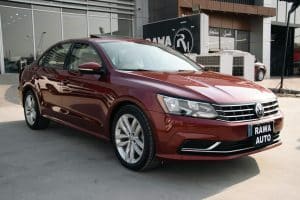China’s EV Dominance: Outselling ICE Vehicles for the First Time
The automotive industry has seen a major shift in recent years with the rise of electric vehicles (EVs). While countries like the United States and countries in Europe have been leading the way in EV sales, one country has emerged as the leader in this market: China. In 2020, China surpassed the milestone of outselling traditional internal combustion engine (ICE) vehicles for the first time in history. This unprecedented achievement has solidified China’s dominance in the EV market and has major implications for the global automotive industry. Let’s take a closer look at China’s EV dominance and what it means for the future of transportation.
The Rise of EVs in China
China’s journey to becoming the top player in the EV market has not been a recent development. In fact, the Chinese government has been actively promoting EV adoption since the early 2000s as a means to combat air pollution and reduce dependence on foreign oil. These efforts have paid off tremendously, as China now boasts the largest EV market in the world.
One of the key factors contributing to China’s success in the EV industry is its favorable policies and incentives. The Chinese government has implemented subsidies, tax breaks, and other incentives to encourage consumers to purchase EVs. In addition, the government has also set ambitious targets for automakers to produce a certain percentage of new energy vehicles (NEVs), including EVs, in their fleet each year.
Surpassing ICE Vehicles for the First Time
In 2020, China’s NEV sales reached a record high of 1.367 million units, surpassing ICE vehicle sales for the first time. This was a 4% increase from the previous year, while ICE vehicle sales dropped by 6%. This remarkable feat was largely driven by the government’s policies and incentives, as well as the increasing demand for cleaner and more sustainable modes of transportation.
In addition, Chinese EV manufacturers have been stepping up their game in terms of technology and design. Companies like NIO, BYD, and Xpeng are continuously launching new models with longer range, faster charging times, and advanced features. These EVs are becoming more affordable and comparable to ICE vehicles, making them a more attractive option for consumers.
Implications for the Global Automotive Industry
China’s dominance in the EV market not only has significant effects on its own economy but also on the global automotive industry. As the largest market for EVs, China has become a crucial player in shaping the future of transportation. Its success in promoting and adopting EVs has been a driving force for other countries to follow suit.
Furthermore, China’s large-scale production of EVs has also helped to lower costs and accelerate technological advancements in this sector. This could potentially lead to a more widespread adoption of EVs globally and make them more accessible to the general public.
The Road Ahead
China’s EV dominance is undoubtedly a major milestone for the EV industry, but it is only the beginning. The Chinese government has set even more ambitious targets for NEV sales in the coming years and has announced plans to phase out the production and sales of conventional ICE vehicles. This is a clear indication of China’s commitment to a more sustainable and greener future.
As other countries around the world begin to ramp up their efforts in promoting EV adoption, it is clear that China will continue to play a crucial role in shaping the future of transportation. Its success in dominating the EV market serves as a reminder that the path to a more sustainable future is within our reach.
In conclusion, China’s EV dominance is a testament to the power of government policies, incentives, and consumer demand in driving the transition to a more sustainable mode of transportation. With its continued efforts and advancements in technology, China is well on its way to becoming a leader in the global EV market.










